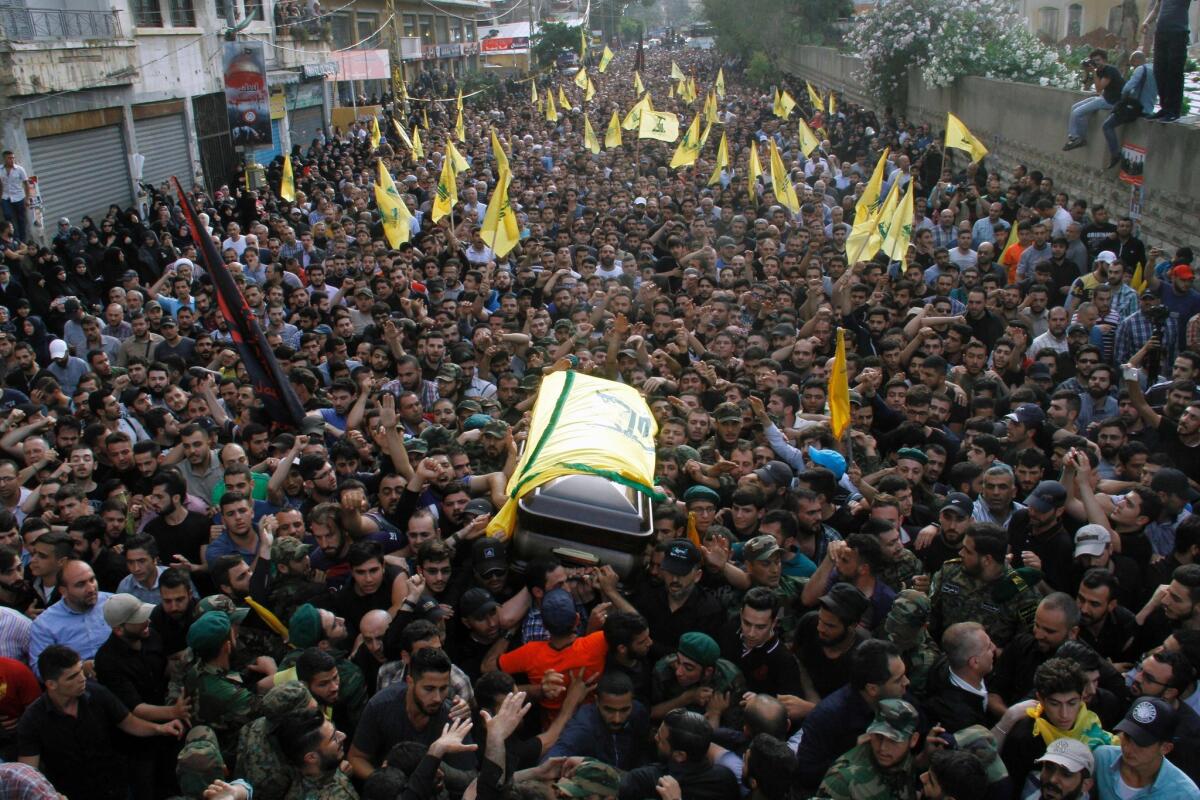Trump administration sanctions Christian leader in Lebanon

- Share via
WASHINGTON — In an effort to undermine the pro-Iranian Hezbollah party in Lebanon, the Trump administration Friday took the rare step of sanctioning a top Christian leader in the fractious country, accusing him of widespread corruption.
Administration officials accused parliamentarian Gebran Bassil, who is President Michel Aoun’s son-in-law, of using government posts to enrich himself and his allies through illicit contracts and front companies, as well as providing cover for Hezbollah’s “terrorist activities.”
The imposition of sanctions, which makes it illegal for U.S. citizens and companies to do business with the targeted people or entities, is a common tactic of the Trump administration. But there has been a steady, growing pace of such sanctions in what may be the final weeks of this presidency.
It was unusual for the administration to cite a prominent member of Lebanon’s Christian community, which is part of a complicated power-sharing government arrangement with the Shiite Muslim Hezbollah party.
“Through his corrupt activities, Bassil has also undermined good governance and contributed to the prevailing system of corruption and political patronage that plagues Lebanon, which has aided and abetted Hezbollah’s destabilizing activities,” Secretary of State Michael R. Pompeo said in a statement.
“Lebanese political leaders should be aware that the time has long passed for them to put aside their own narrow self-interests and instead work for the people of Lebanon,” Pompeo said.
The move is likely to complicate Lebanon’s already torturous government formation — a process in which Bassil, president of the Free Patriotic Movement political party, was believed to be angling to replace Aoun in the presidency. Bassil has also been seen as an obstacle in the process because of his insistence on control over a number of ministries.
The new sanctions come at a delicate time for the country. In the past year, Lebanon’s currency has collapsed, losing nearly 80% of its value, while anti-government protests brought a full quarter of the country’s population into the streets. Bassil has been a particularly reviled figure, with protesters regularly cursing him in their chants.
Bassil has said that working with Hezbollah is merely part of the reality of Lebanese politics.
In responding to the sanctions, Bassil struck a defiant tone. “Sanctions have never frightened me nor have promises seduced me,” he said on Twitter. “I am used to injustice and learnt from our history: We are destined in this Orient to bear our cross every day ... so that we can survive.”
The U.S. action is a further attempt by the administration to isolate Hezbollah, which has relied on Bassil and his party to help counter a raft of sanctions imposed on Iran.
“No one has done more to expand Hezbollah’s political dominance in Lebanon than Bassil,” said Jeffrey Feltman, a former U.S. ambassador to Lebanon and former head of political affairs at the United Nations. “By positioning himself and his party as Hezbollah’s junior partner, Bassil handed Hezbollah a veneer of Christian legitimacy. ... Without Bassil, Hezbollah would have a harder time disguising its sectarian, terrorism and Iranian roots.”
More to Read
Get the L.A. Times Politics newsletter
Deeply reported insights into legislation, politics and policy from Sacramento, Washington and beyond. In your inbox twice per week.
You may occasionally receive promotional content from the Los Angeles Times.












